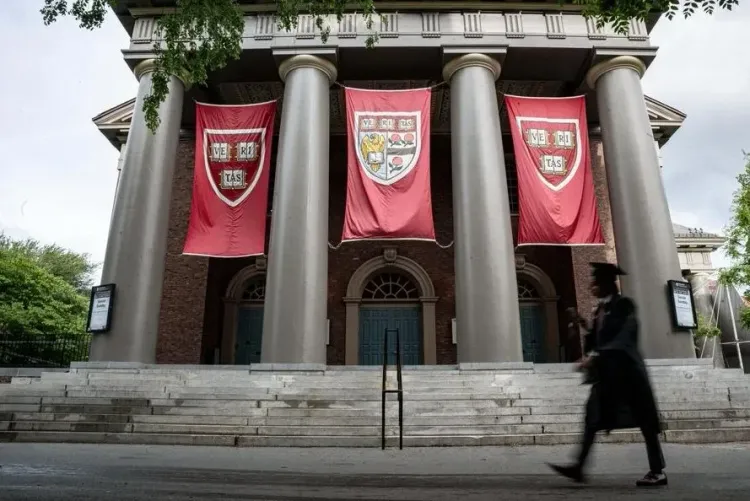Did a US Federal Judge Just Favor Harvard in Its Legal Battle Against the Trump Administration?

Synopsis
Key Takeaways
- The court ruled in favor of Harvard against the Trump administration.
- Federal funding freeze deemed illegal.
- Importance of safeguarding academic freedom highlighted.
- Free speech and civil rights are central to the ruling.
- Government accountability in educational policies emphasized.
Washington, Sep 4 (NationPress) A federal judge in the United States has ruled in favor of Harvard University in its legal battle against the Trump administration, determining that the federal government unlawfully halted billions in research funding.
Allison Burroughs, the presiding judge of the US District Court for the District of Massachusetts, stated on Wednesday that "The defendants (US Department of Health and Human Services and US Department of Justice) employed anti-semitism as a cover for a targeted and ideologically-driven attack on this nation's leading universities".
On April 11, officials from the Trump administration sent a letter to Harvard, insisting that the institution eradicate anti-semitism on campus and dismantle diversity initiatives that benefit specific minority groups, as reported by Xinhua news agency.
In that correspondence, the Trump administration issued 10 demands to Harvard, which included limiting the admission of international students deemed "hostile to American values and institutions", conducting third-party audits of programs that allegedly incite anti-semitic harassment or reflect ideological bias, and abolishing all diversity, equity, and inclusion initiatives in hiring and admissions.
The ruling indicated that the Trump administration's actions were inconsistent with the Administrative Procedure Act, the First Amendment of the US Constitution, and Title VI of the Civil Rights Act of 1964.
After Harvard rejected these demands on April 14, the Trump administration imposed a freeze on $2.2 billion in multi-year grants and an additional $60 million in multi-year contract values to the university.
Judge Burroughs emphasized the need to combat anti-semitism while also protecting rights such as free speech, stating, "We must oppose anti-semitism, but we must also defend our rights, including our freedom of expression; neither objective should be sacrificed for the other."
While acknowledging that Harvard "had been wrong to tolerate hateful behavior for too long," Burroughs noted that the university is now taking necessary actions to address anti-semitism and seems prepared to do more if required.
Burroughs asserted, "It is now the court's responsibility to safeguard academic freedom and free speech as mandated by the Constitution, ensuring that essential research is not improperly subjected to arbitrary and procedurally flawed grant terminations, even if this incurs the displeasure of a government committed to its agenda at any cost."
The judge granted a motion for summary judgment, signifying that she ruled in favor of Harvard without proceeding to a trial.
In response, the White House appeared to challenge the ruling, stating, "Harvard does not possess a constitutional entitlement to taxpayer funds and remains ineligible for future grants."
White House spokesperson Liz Huston remarked, "To any unbiased observer, it is evident that Harvard University failed to protect its students from harassment and allowed discrimination to persist on its campus for years."
The Education Department dismissed the ruling as "unsurprising", with spokesperson Madi Biedermann commenting, "The same judge appointed by Obama who favored Harvard's illegal race-based admissions policies—ultimately overturned by the Supreme Court—just ruled against the Trump Administration's efforts to hold Harvard accountable for widespread discrimination on campus. Cleaning up our nation's universities will be a long journey, but it's worthwhile."









